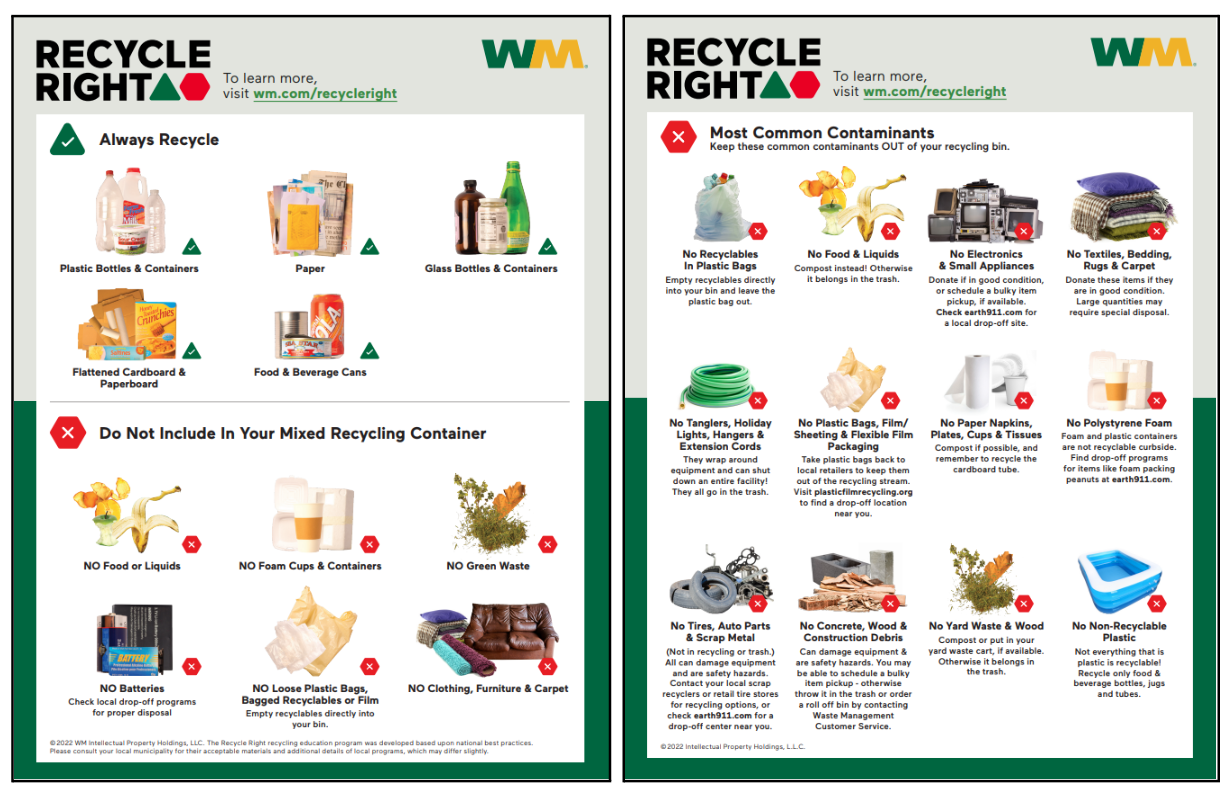Searching for ways to reduce your school’s waste? Look no further!
This past month, the PAISBOA Sustainability Group hosted a “Reduce Your School’s Waste” panel discussion. Presenters included: Maurice Q. Jones, General Manager of PAR Recycle Works, Jennifer Smith, Senior Account Executive at Waste Management of Pennsylvania; and Mary Ann Boyer of Boyer Sudduth Environmental Consultants. The panel was moderated by Ron Hill, Operations Manager at PAISBOA, and centered on various opportunities and methods for waste reduction in the educational environment.
Panelists at the PAISBOA Sustainability Low Waste Discussion.
Lunchtime Learning: Reducing Food Waste
In her panel, Mary Ann Boyer focused primarily on food waste reduction. Approximately, a whopping 40% of food is wasted in this country. According to ReFed, food waste costs the United States about $408 billion annually, with the average American consumer wasting almost ten times more food than people in other areas of the world (such as Southeast Asia and Sub-Saharan Africa). But these monetary costs are not the only problem–landfilled food waste also emits methane, an extremely potent greenhouse gas whose warming effects can be even more severe than those of CO2.
Boyer offered guidance on how schools can work to mitigate these effects, and recommended starting with a waste audit to quantify the school’s situation and establish a benchmark for future progress. Next, the educational aspect begins, with campaigns for waste-free lunches, creating partnerships with local farms for composting, and posting clear signage with separate bins at disposal areas.
Boyer Sudduth’s example of “What a Waste Free Lunch” looks like when bringing in lunch from home.
Boyer noted that changing behavior around food waste is challenging. “There’s lots of teachable moments when we talk about food waste.” As progress is made, she notes: “Keep the message fun and emphasize the positive impacts you’re making.”
She also included recommendations for green certifications for schools, which can serve as motivation by setting clear and attainable goals. Programs like the U.S. Department of Education’s Green Ribbon Schools and National Wildlife Federation’s Eco Schools are great opportunities for this kind of growth.
Simplifying Recycling: What Goes Where?
“There are many, many products out there in the consumer market that can be recycled– theoretically– through different programs,” said Jennifer Smith, an executive at the Waste Management Company. “But not all products can be recycled through single-stream recycling.”
Graphics like these from Waste Management can make a difference in reducing waste.
Many people don’t realize that the three-arrow symbol on an item does not always mean it’s recyclable, but rather is an indication of what type of plastic is used in the material. Waste Management’s Recycle Right campaign is aiming to bring awareness to this misunderstanding by eliminating contaminants, like plastic bags, from their processing systems. These items clog the equipment and can cause major delays or even fire hazards. The easiest way to prevent this is through simple visual guides. By clearing labeling disposal areas, waste can not only be reduced, but made more efficient.
Putting E-Waste to Work: One Electronic Device at a Time
General Manager, Maurice Q. Jones, of PAR Recycle Works addressed a different form of waste:”E-Waste” or electronic waste. PAR, or People Advancing Reintegration, collects e-waste through events like school drives or drive-through dropoffs. This non profit trains formerly incarcerated individuals with job training skills. PAR employees collect, sort, and deconstruct electronic equipment which supports a “circular” sustainable economy. Many discarded electronics contain valuable metals, such as gold, which is then sold to responsible recycling institutions.
PAR Recycle Works accepts these types of electronic waste.
PAR’s efforts help to reduce the 54 million tons of e-waste that are currently in landfills. Many people, and schools, don’t realize the environmental value that their old laptops or electronics devices hold. PAR workers are specially trained to extract the concentrated material from this waste, creating a greatly-needed circular economy. PAR making a difference in the lives of its workers while helping the environment — one device at a time.
A recording of the virtual panel discussion can be found here.
To learn more about sustainability among our member schools, please join PAISBOA’s Sustainability Listserv and consider coming to our PAISBOA Sustainability meeting hosted by Germantown Academy on October 24, 2023 from 5:15 - 7:30 pm – dinner included. To register, contact admin@PAISBOA.org. Stay tuned for more information!
Article by Lizzie Quackenbush (Boston College ‘25), Sustainability Intern, Boyer Sudduth Environmental Consultants.
Article printed in PAISBOA’s Friday Flyer Vol . XII, No. 13 - October 6, 2023.






